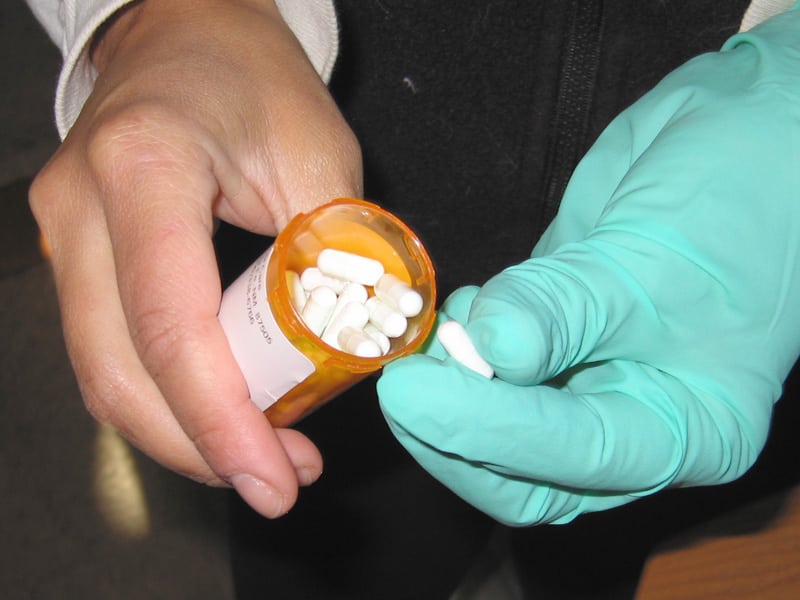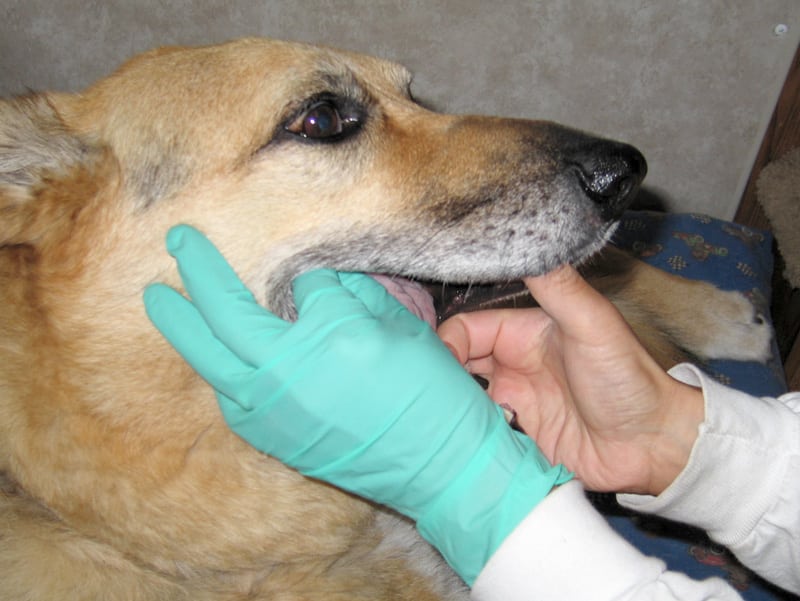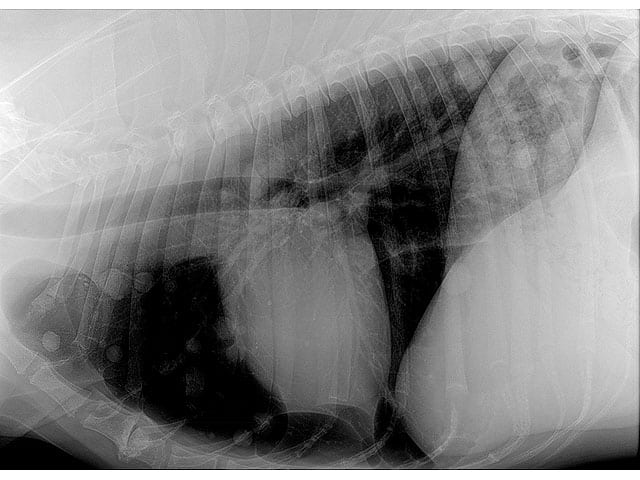Metronomic chemotherapy for cancer dogs is the subject of this week’s Tripawd Talk Radio. Listen to this informative interview with one of the world’s leading experts on metronomics, Dr. Barbara Biller, Veterinarian and Assistant Professor of Oncology at Colorado State University Animal Cancer Center and read on for highlights of our discussion.
Listen to this episode below and subscribe to Tripawd Talk wherever you enjoy podcasts
What is Metronomic Chemotherapy?
Metronomic chemotherapy is quite different from conventional chemotherapy, which is what many dogs receive when a cancer diagnosis is given. A dog receiving traditional chemotherapy treatments will receive high doses of chemotherapy drugs given at separate intervals throughout the course of several weeks, in order to completely kill off tumor cells.
 However when it comes to metronomic chemotherapy, dogs are given lower, continuous doses on a daily basis. Metronomics works by preventing existing tumor cells from growing, by cutting off their blood supply. Without a food source, the tumors will not grow.
However when it comes to metronomic chemotherapy, dogs are given lower, continuous doses on a daily basis. Metronomics works by preventing existing tumor cells from growing, by cutting off their blood supply. Without a food source, the tumors will not grow.
According to Dr. Biller, the concept of metronomic chemotherapy is similar to how a metronome works. When you turn on a metronome, it just keeps ticking along. If you administer chemotherapy in low, continuous doses, it works similarly, by continuously starving tumor cells around the clock and managing the disease so it remains stable for as long as possible. This is an exciting new way of looking at chemotherapy and managing cancer.
“In a sense we’re learning to live with cancer as a chronic disease,” says Dr. Biller, “and that’s OK as long as the tumor is not big enough to cause problems or to get places where they shouldn’t be.” Theoretically, it makes sense to for a dog stay on metronomics indefinitely until something happens, such as exponential lung metastasis or if a dog experiences uncomfortable side effects like bladder irritation (cystitis) or low white blood cell count.
Finding a Metronomics Dose for Soft Tissue Sarcomas
 When you give to Morris Animal Foundation, you can rest easy knowing that your funds go to work almost immediately. Dr. Biller’s metronomic chemotherapy “dose finding study” is just one exciting example of how your generosity helps to advance canine cancer research.
When you give to Morris Animal Foundation, you can rest easy knowing that your funds go to work almost immediately. Dr. Biller’s metronomic chemotherapy “dose finding study” is just one exciting example of how your generosity helps to advance canine cancer research.
In 2008, Dr. Biller applied for a grant with Morris to look at which doses were most effective for dogs receiving metronomic chemotherapy treatments. Because metronomics is still relatively new and few studies have been performed, drug protocols tend to vary depending on the oncologist prescribing treatment. For example, when Tripawds Founder Jerry was on metronomic chemotherapy we were giving him cytoxan every other day, but we later learned that some dogs are given a different drug like CCNU, and told to take it every day.
The reason protocols vary is simple: “In veterinary patients, we’ve only been guessing,” says Dr. Biller. There are no clear answers about the specific efficacy of metronomics on certain types of cancers, what kinds of drugs work best, and when they should be given. While metronomics has been shown to stave off tumor growth for long periods of time, few published studies offer specific guidelines for veterinary oncologists to follow.
 To help veterinary oncologists prescribe more effective treatments, Dr. Biller researched what dose of the metronomic chemotherapy drug Cytoxan (Cyclophosphamide) was most effective for dogs who are fighting soft tissue sarcomas.
To help veterinary oncologists prescribe more effective treatments, Dr. Biller researched what dose of the metronomic chemotherapy drug Cytoxan (Cyclophosphamide) was most effective for dogs who are fighting soft tissue sarcomas.
“We decided to start with one drug, and ask, ‘What dose is anti-angiogenic?,’ meaning it keeps tumors stable by cutting off their blood supply,” she explained.
Dr. Biller’s team chose to study metronomics in soft tissue sarcomas, because they needed to look at easily accessible, slow-growing tumors that could be examined before, during and at the end of the two-year study. “In those tumor samples we needed to know how many blood vessels were in there, because that’s how you’re going to find out whether your treatment is doing what you think it’s supposed to do,” she told us.
In 2011, Dr. Biller’s team successfully identified the ideal dose of cytoxan that is anti-angiogenic in dogs with soft-tissue sarcomas. “Now we at least have a dose that you can hang your hat on, that says ‘We can use this dose.’ Up until that point, it’s really just been a big guess. That was the most important thing that we learned,” she says.
The findings from Dr. Biller’s study were published in the July/August 2011 edition of the Journal of Veterinary Internal Medicine.
Is Metronomic Chemotherapy Right for Your Bone Cancer Dog?
More research needs to be done to discover which cancers are best suited for metronomic chemotherapy. While metronomics isn’t meant to replace traditional chemotherapy, if this type of treatment isn’t working for your dog, or you choose not to pursue it, Dr. Biller says there’s very little reason not to try metronomics. It’s affordable, it’s easy and it could stabilize the disease. It might not work, but it’s an exciting experimental option that’s now on the table.
As more funds are raised to study metronomics, future dogs who are diagnosed with cancer will benefit greatly from the work of dedicated researchers like Dr. Biller. Be sure to give to the Morris Animal Foundation so we can get there!
Recommended Reading
Tripawds Discussion Forums: Metronomic Chemotherapy for Canine Osteosarcoma
Tripawds Nutrition Blog: Supplements Information
1 thought on “Metronomic Chemotherapy News Podcast on Tripawd Talk Radio”